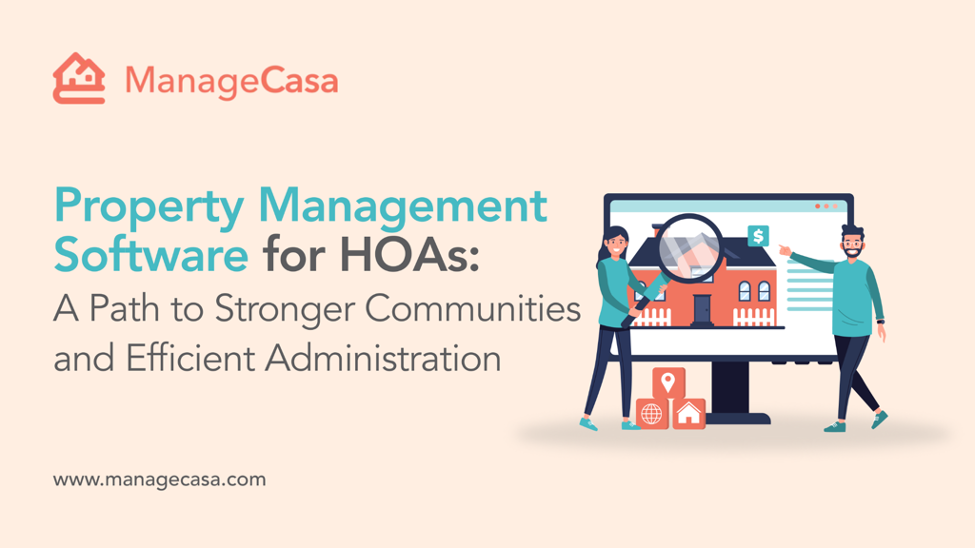What does it take to build a thriving, connected community in a Homeowners Association (HOA)?
While HOA board meetings may seem like routine gatherings, they are essential for fostering unity, ensuring transparency, and creating a better neighborhood for everyone.
But how can we make these HOA meetings more effective and engaging?
The Challenge: Building a strong sense of community in an HOA isn’t always easy. Many homeowners experience frustration over a lack of communication, disengagement from neighbors, or unresolved conflicts. These challenges can create a disconnect between the owners and the HOA board, making establishing a shared vision for the neighborhood difficult.
The good news is that HOA meetings offer a solution to these problems when done right! Far from being just about rules and regulations, HOA meetings are an essential platform for community building, where owners can connect, collaborate, and contribute to shaping the future of their neighborhood. Moreover, research by Clarke and Freedman shows that nearly 60% of recently built single-family houses in the U.S. are part of an HOA, and HOAs govern 80% of houses in new subdivisions.
This exemplifies the growing importance of effective HOA meetings in fostering thriving communities. If you’re an HOA member and want your community to thrive, this blog is for you!
5 Essential Reasons HOA Meetings Are Indispensable

HOA meetings are more than just business—they’re about building a vibrant, well-connected community. Here’s why they matter beyond approving budgets and enforcing rules:
1. Decision-Making
HOA meetings provide a structured forum for owners to voice their opinions and vote on matters that affect their community. Whether it’s a decision about improving common areas or updating community guidelines, these meetings ensure that owners have a say in shaping their neighborhoods.
2. Transparency and Accountability
Without clear communication, mistrust can grow between the HOA board and owners. HOA meetings help maintain transparency by informing the community about board decisions, financial management, and other critical matters. When the board is open and accountable, owners feel more confident in how their dues are being used and the direction the community is headed.
3. Conflict Resolution
Disagreements are inevitable in any community, but HOA meetings offer a formal space for addressing and resolving these conflicts. By providing a platform where owners can express concerns and the board can respond, disputes are less likely to escalate, fostering a more harmonious living environment. To learn more about effective conflict resolution strategies, check out our blog post: HOA Best Practices: Smart Ways to Resolve Conflicts and Boost Communication.
4. Information Sharing
From upcoming maintenance projects to important policy changes, HOA meetings are vital for disseminating information. Regular updates help ensure owners know about ongoing efforts to improve the community and are prepared for disruptions or changes.
5. Social Connection
HOA meetings also serve as a way for neighbors to come together and get to know each other. The more connected owners feel to one another, the stronger the sense of community. Meetings can be the foundation for friendships and cooperative efforts beyond HOA business’s formalities.
While HOA meetings are crucial, they can sometimes be dull, poorly attended, or ineffective if they are not well-organized. Meetings need to engage owners and encourage participation to build a better community.
HOA meetings often face challenges that hinder their effectiveness and discourage homeowner participation. From disorganized agendas and unproductive discussions to a lack of communication and homeowner apathy, these issues can prevent HOAs from reaching their full potential.
But there are ways your HOA can employ to avoid everything aforementioned. Keep reading to find ways to make your HOA meetings smooth and productive and, most importantly, inspire everyone to participate.
Transforming HOA Meetings: Effective Strategies for Success
While HOA meetings are crucial for community governance, they can sometimes fall short of their potential. To truly build a better community, these gatherings must be engaging, productive, and focused on fostering connections.
Here’s how to transform your HOA meetings from routine gatherings into impactful events that strengthen your neighborhood:
1. Boosting Engagement and Productivity
Traditional HOA board meetings often suffer from a lack of structure and limited homeowner involvement. To make them more engaging and productive, consider these strategies:
- Clear Agendas: Start with a concise HOA meeting agenda that covers relevant topics and respects time limits. This keeps HOA board meetings focused and ensures that key issues are addressed efficiently.
- Open Dialogue: Encourage homeowner feedback and allocate time for questions. Giving owners a platform to express concerns and ideas makes them feel valued and invested in the community.
- Interactive Formats: Make HOA meetings more dynamic by incorporating Q&A sessions, interactive polls, or small group discussions. These formats stimulate participation and encourage collaboration.
- Technology Integration: Utilize online tools for remote participation, voting, and sharing important documents. Virtual platforms can make it easier for owners with busy schedules to join HOA meetings and stay informed.
- Welcoming Atmosphere: Foster a warm and inclusive environment. Simple gestures like welcoming new owners or providing refreshments can significantly impact how people feel about attending and contributing to HOA meetings.
2. Building Community Beyond Business
HOA meetings offer a valuable opportunity to foster a stronger sense of community. Go beyond the typical business agenda and incorporate activities that encourage connection and collaboration:
- Social Events: Combine HOA meetings with social gatherings like potlucks, picnics, or holiday parties. This adds an element of fun and casual interaction, helping owners bond and build relationships.
- Community Workshops: Host workshops on topics relevant to owners, such as home maintenance tips, gardening, or neighborhood safety. These events can turn HOA meetings into valuable learning opportunities and foster a sense of shared purpose.
- Guest Speakers: Invite local experts, government officials, or business leaders to speak at HOA meetings. This can provide valuable insights into new developments, safety measures, or environmental initiatives, keeping the community informed and engaged.
- Volunteer Opportunities: Use HOA meetings to promote volunteer opportunities within the community. Whether it’s organizing a neighborhood cleanup or starting a community garden, these activities improve the neighborhood and strengthen bonds between owners.
3. Essential Topics for Transparency and Trust
While engaging formats are important, the content of HOA meetings is equally crucial. Covering these essential topics builds trust and transparency within the community:
Financial Health
- HOA Dues and Fees: Explain how HOA dues and fees are collected and allocated, ensuring owners understand their importance and any upcoming changes.
- HOA Budget Planning: Present the annual budget and involve owners in financial planning discussions.
- Reserve Studies: Highlight the importance of reserve funds for long-term HOA maintenance and improvements and emergency repairs. Effective reserve studies ensure that the community is financially prepared for future needs.
Research indicates that HOA fees are comparable to annual property taxes, averaging around $2,800 annually. This underscores the critical need for transparency and homeowner involvement in financial decision-making, ensuring everyone understands how these funds contribute to maintaining and enhancing the community.
For a deeper dive into HOA financial management, read “Understanding the Basics of HOA Financial Management: A Comprehensive Guide.”
HOA Maintenance and Improvements
- Routine Maintenance: Provide updates on routine maintenance tasks, such as landscaping or facility repairs.
- Major Projects: Discuss any upcoming repairs, renovations, or community enhancements, outlining timelines and anticipated costs.
- Community Enhancements: Encourage owners to propose new ideas for improving common spaces, from playgrounds to walking paths.
- Rules and Regulations: Clarify existing community rules, address any areas of confusion, and discuss proposed regulation changes that may impact owners.
HOA meetings are more than a routine requirement—they are the cornerstone of a well-connected, thriving community. By making these meetings engaging, transparent, and inclusive, HOAs can strengthen their neighborhoods and build a more cohesive environment.
Now more than ever, it’s essential for owners to actively participate, share their ideas, and help shape the future of their community. However, we understand that balancing homeowner engagement with the daily demands of HOA management can be challenging. That’s where ManageCasa comes in to simplify and streamline your responsibilities.
ManageCasa: The Future of HOA Management is Here

Managing a HOA can often feel like juggling. From efficiently holding meetings, overseeing elections, managing finances, and keeping the community thriving, HOA boards face many responsibilities.
But you don’t have to manage it all alone. ManageCasa is an all-in-one platform designed to alleviate those burdens and enhance every aspect of HOA management.
Here’s how ManageCasa empowers you to ditch the juggling act and become a homeowners association management maestro:
- Streamlined Administration
- Financial Tools
- Maintenance and Operations
- Communication Channels
- Reporting and Analytics
- eVoting Features
Our platform is more than just software – it’s a comprehensive partner that empowers you to handle your responsibilities confidently and efficiently. By integrating advanced administration, finance, maintenance, and communication, ManageCasa ensures you have everything you need to create a thriving community.
Ready to build a better community? Schedule a DEMO today and level up your HOA community management with ManageCasa!
Residents tends to be for renters but for HOA we should use owners can you change this where ever you see resident


